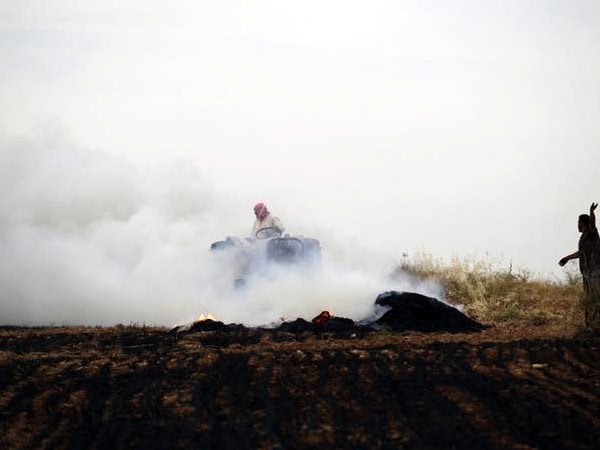New Delhi: The rampant practice of stubble burning has emerged as a major problem in Punjab and Haryana, leading to an increase in the environmental pollution as well as posing a major health hazard to the residents. In line with its commitment to foster best agricultural practices and to provide training to farmers against agricultural residue burning, Parijat industries have been conducting training of farmers in different parts of northern India.
It recently conducted a session for farmers in collaboration with students and professors of Chaudhary Charan Singh Haryana Agricultural University at Hisar. The session witnessed attendance of more than 1500 progressive farmers.
The special focus of the campaign was to create awareness among farmers about proper management of crops residue and the ill effects of stubble burning after harvesting. In its two day session, the farmers were persuaded to procure the machines from co-operatives to aggregate the stubble and convert it into fertiliser, which can then be used back in the field. They were informed that this method would improve soil fertility and would prevent the production of ash.
Senior professors from the university also apprised the farmers of disadvantages of straw burning, and urged them to use balers, seeders, zero tillage and other machines, to safeguard the environment and manage better soil health.
“We along with Agri Experts from university and Krishi Vikas Kendra are playing our part, to inform and train farmers as well as urge them not to resort to stubble burning. Farmers are informed of the harmful effects of burning paddy straw as this causes the soil to lose its nutrients thus bringing down its fertility. In addition, the burning cause’s generation of a thick layer of smog-causing severe health issues particularly to children”, said Professor K. P. Singh Vice-Chancellor, Haryana Agricultural University, Hisar.
The problem of agriculture waste burning has been intensifying over the years, with Punjab, Haryana and Uttar Pradesh being the major burning hotspots.
State governments are also conducting a series of awareness activities across through meetings with farmers, arranging Crop Residue Management (CRM) machines and spreading awareness in villages.
During the event at Hisar, representatives from Parijat also trained farmers on the responsible use of crop protection products and importance of the usage of Personal Protection Equipment (PPE) at the time of spraying.
Parijat also distributed its compact safety handbook for farmers. The company has published special pocket size safety handbooks as a ready reference for the safe and right use of pesticides by farmers in nine important Indian languages, such as Bangla, English, Gujarati, Hindi, Kannada, Marathi, Punjabi, Tamil, Telugu and Urdu. The books are being widely distributed for free to farmers across the country.
[source_without_link]ANI[/source_without_link]

